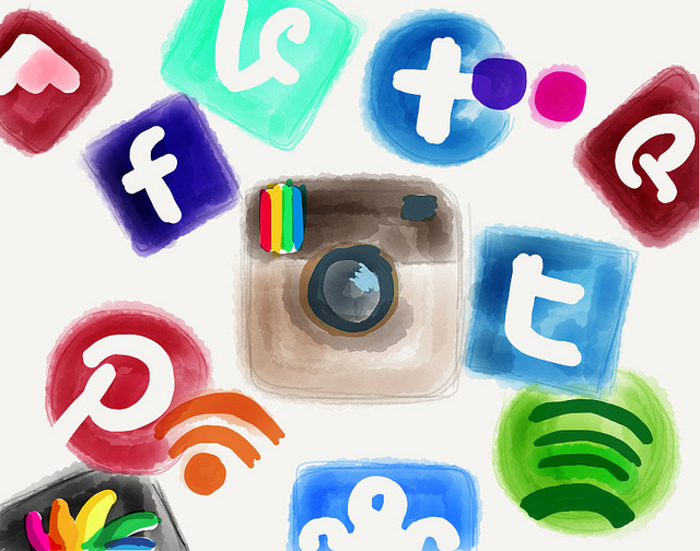We all can recognize a clickbait title. If you don’t, just go to Buzzfeed.com or other news aggregation sites’ front pages. Clickbait titles are sensationalist at best, often ridiculous, and sometimes dangerously misleading. “Pop star (or politician) admits to being half-alien!” “Dead actress’s unclothed image appears on tortilla!” “Use this easy trick with your ear wax to lose weight!”
Yes, clickbait is all over the web, and it is embarrassing to be compelled admit having actually clicked through to see these ludicrous ‘stories’.
The vast majority of the time, such valueless links actively waste readers’ time. The content is seldom even related to the title, and almost never interesting on its own. It can even expose the user to actual damage and inconvenience.
However, there’s much more to it. Clickbait may be downright dangerous for your company and brand and here’s why.
Reputation
Do you really want to be associated with zero quality content? Do you want to be known as a source of inconvenience and irritation for your readers? Can you afford to be classed in your public’s mind with sites of dubious reliability and possible hacking?
It would be wise to consider these questions when choosing such a strategy. As a business or writer with an online presence, your reputation is fragile, and the goodwill of your readers is likely one of your few (and very real) assets. Don’t endanger it by using this technique for acquiring more page views.
Expectations
Even if you avoid the sort of silliness parodied previously, it is hard to fulfill the sort of hype that a clickbait title provides. In revving up the prose, you have also raised your readers’ expectations unrealistically. What you actually can share will almost certainly be a letdown after the big buildup.
This is disappointing to most readers, and will make them feel deflated and imposed upon. You don’t want to lower the quality of your readers’ user experience that way, do you? If you do this too often, and too dramatically, you will risk losing readership…and for what? A few more clicks! You will acquire enemies rather than friends this way.
Skills

As a writer, trying to create content to follow up on a goofball clickbait title is like trying to touch your elbow with your ear – it contorts you, and accomplishes nothing substantial. It is very easy to get distracted and thrown off from the main purpose of the blog post or other web content by the pressure to somehow connect it to a whacky clickbait title.
This is not the best way to hone and perfect your writing skills since it actually encourages bad habits. You are likely to get all twisted up in knots trying to include and address totally unrelated subjects in one article. That goes against all the recommendations for good exposition, which suggest focusing on and detailing one topic in one essay.
Time
It is a massive waste of your time as a professional writer to be trying to write to match up with a clickbait title. A thoughtfully composed title is all you need to work from.
It should be interesting and well-constructed; such a title accomplishes a sizable proportion of your work for you! You should be inspired and directed by such a title and the ideas and words should flow reasonably from that title. Anything else is less than a good use of your energy and effort.
Malware
Perhaps the most disturbing aspect of the clickbait phenomenon is its taint of possibly containing malware. Clickbait titles that download viruses have been appearing with so much regularity that the Better Business Bureau has issued several warnings about it.
The BBB, by the way, has shared a set of tips for consumers and net users to avoid scams. Let’s turn them around and use them to guide our creation of credible, clickbait-free titles.
- Avoid promising info or images that are “exclusive”, “shocking” or “sensational”.
- Make sure that when a user hovers over your link, a verifiable website shows up.
- Keep your site registration up to date so that when people examine your credentials more closely, they can be reassured of your integrity.
Social media pitfalls

For younger readers/users, social media is a precious resource, and anything that endangers their image online or their access to these tools is poison. Clickjacking is the technique that uses an unsuspecting Facebook user to trick others into “liking” a particular link (which may involve a malware download or theft of identifying information).
This hijacking of a person’s activity and identity online is so toxic that even blameless individuals who have been hacked can experience subsequent social media ostracism and criticism from their “friends.” It may require a wholesale change of passwords and such in order to protect them and their contacts from further intrusion (maybe). This can be intensely inconvenient and people get really, really, angry over such impositions.
Having even a hint or whiff of connection to clickjacking is a great way to shut off your flow of new readership, and return customers, through the social media. Social media are too important these days to your marketing and promotion to discard, so avoid even looking like you are clickbaiting!
Better Alternatives
If you are tempted to capitalize on a current, sensational event, use it in a logical and reasonable way. A good writer can do this! For example, a famous comic actor commits suicide. Rather than promising “Shocking Last Video While Alive,” try focusing instead on the controversial topics that the comedian addressed, the issue of depression, the issue of psychiatric medication, the movies and shows the comic created, or any number of other valid and actually interesting topics.
The same sort of thought process can be applied to exploit (legitimately) almost any news event. As another example, consider a natural disaster in the news. Rather than suggesting “Two-Year-Old Toddler Predicted Meteor Strike – See Stunning Video Here!”, this event offers the chance to discuss all sorts of topics related to disaster preparedness, NASA progress on asteroid/meteor tracking systems, the technology involved in detection, or the character of the region where the impact occurred.
A clever writer can find subjects to connect realistically with your business.
Conclusion
Clickbaiting is a nasty phenomenon that infests the web too much these days. If you want to be considered legitimate and maintain a positive reputation online with your readers/users/customers, avoid anything that resembles a clickbait title.
It is perfectly acceptable to make reference to current events in your titles, even the most sensational or tabloid-worthy. However, you can set yourself apart by using these events to create relevant stories that offer useful insights or information, connected cleverly to your business or blog topic. That is good writing, marketing, and use of the web.




